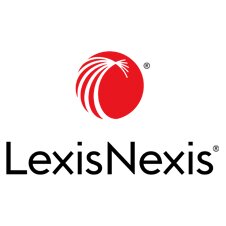Total Economic Impact study reveals organisations using LexisNexis InterAction achieved 220% ROI over three years
The study also finds that businesses deploying InterAction saw a 62% efficiency improvement in their marketing and business development staff
InterAction by LexisNexis, a leading client relationship management (CRM) solution purpose-built for legal and professional services, today released a commissioned study conducted by Forrester Consulting on behalf of LexisNexis titled The Total Economic Impact of LexisNexis InterAction. Customer interviews and financial analysis found that customers deploying InterAction saw, on average, a 62% efficiency improvement in their marketing and business development staff and a 34% efficiency improvement among lawyers and professionals over a three-year period. Customers also realised a 2% improvement in revenues, a gain Forrester attributes directly to InterAction.
“Law firms and organisations are looking carefully at their investments – as they should in today’s rapidly changing environment – so we commissioned the Forrester study to clearly quantify the value of InterAction across our customer base,” said Brendan Nelson, GM of LexisNexis Business Solutions. “We have always believed InterAction is a unique tool that helps organisations gain a better understanding of their businesses and turn those insights into cost savings and additional revenue. This study validates that conviction in a big way.”
Based on the study, a composite organisation, based on interviews with five InterAction customers and subsequent financial analysis, experienced benefits of $2.38 million over three years versus costs of $744,468 – adding up to a net present value (NPV) of $1.64 million and an ROI of 220%. Customers deploying InterAction saw:
- Improved marketing and business development staff efficiencies of 62%. InterAction saved organisations 97% of the time previously spent on list generation and management, 50% of time spent on practice group reporting, and 40% of time spent on pipeline tracking.
- Improved lawyers’ and professionals’ efficiencies of 34%. Lawyers and professionals using InterAction reduced the amount of time spent analysing potential new business by 67% – saving approximately $120,000 annually.
- Improved revenues of 2%. Customers reported that InterAction alone was responsible for $1.3 million in income for the composite organisation.
In addition to improving the efficiency of marketing and business development professionals, InterAction saves time for lawyers and professionals participating in marketing and BD activities, the study found. According to interviewees, InterAction reduced lawyer and professional time related to reading and responding to internal emails asking for connections to current or prospective clients; sending duplicative emails or going to duplicative meetings with clients; and determining whether a prospective client would be a good opportunity to pursue.
Ultimately, companies that have invested in InterAction have been able to significantly reduce the time employees spend on administrative tasks associated with marketing and business development work – allowing them to focus on higher-value tasks. Firms and organisations have also been able to add new business by drawing upon insights, provided by InterAction, into their customer base – all while keeping current clients engaged and satisfied.
The Forrester study was developed through research with a group of InterAction customers who had previously been using manual processes for tracking and updating client information and business-relevant statistics. The purpose of the study is to provide readers with a framework to evaluate the potential financial impact of InterAction on their organisations. To download The Total Economic Impact of LexisNexis InterAction study, go to https://www.interaction.com/the-total-economic-impact-of-lexisnexis-interaction/.
Study Methodology
Total Economic Impact (TEI) is a methodology developed by Forrester Research that enhances a company’s technology decision-making processes and assists vendors in communicating the value proposition of their products and services to clients. The TEI methodology helps companies demonstrate, justify, and realise the tangible value of IT initiatives to both senior management and other key business stakeholders.



